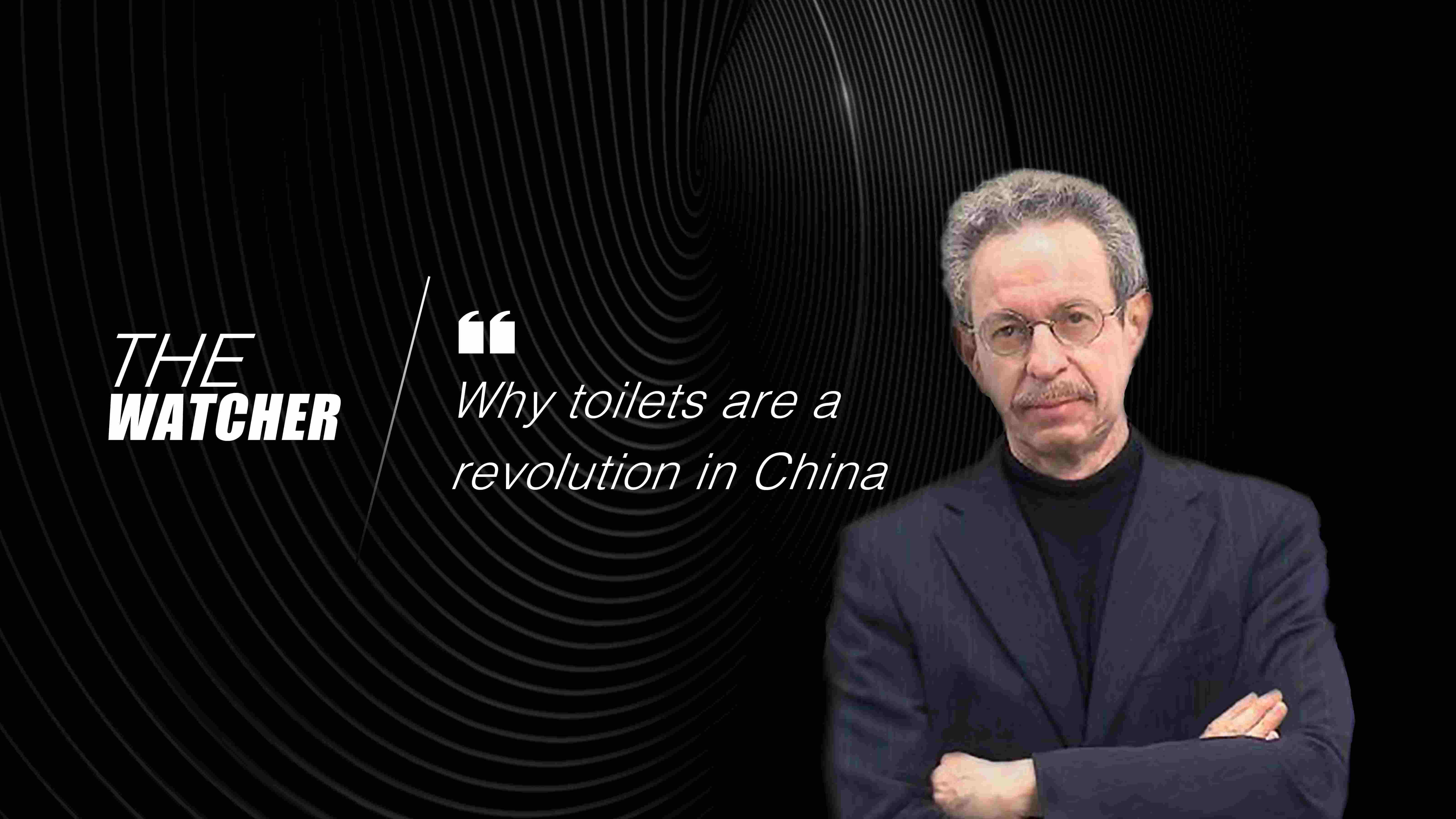
Opinions
16:51, 11-Jan-2019
The Watcher: Why toilets are a revolution in China
Updated
15:52, 14-Jan-2019
By Robert L. Kuhn
04:20

I'm Robert Lawrence Kuhn and here's what I'm watching: Toilets. You heard that right: I'm watching toilets in China.
Toilets are taboo topics. They shouldn't be. While we all go there often, no one likes to talk about them. For China to become a more civilized society, the hygiene of the masses must be improved, especially in rural areas, and for China's tourism industry to blossom, better bathrooms are needed.
Let's be candid. Although China has become the world's second-largest economy, toilets in poor rural areas are often still little more than makeshift shelters surrounded by trees and weeds, while some are open pits next to pigsties, leading to contamination from human waste.
Even in urban areas, many toilets give off noxious odors detectable in hallways well beyond bathroom doors. In China, the “toilet revolution” has become a buzzword; the government has launched two successive three-year action plans. How are they working? What challenges remain?
Toilets are well labeled “the barometer of civilization” and China has well determined that sanitary toilets are essential for a “moderately prosperous society,” China's goal for 2020. For tourists, public toilets make an instant and lasting impression, characterizing the entire country.
In late 2017, right after being re-elected as Party general secretary, Xi Jinping called for China to continue to upgrade the country's toilets as part of an ongoing "toilet revolution" campaign.
When visiting rural areas, Xi often asks local residents about the conditions of their toilets, stressing that clean toilets are vital for building a "new countryside." Challenges remain, especially insufficient funding and regional imbalances, but also weak sanitary awareness and sensitivities.
China's toilet revolution exemplifies how the Party's new “principal contradiction” drives policy, addressing the gap between “unbalanced and inadequate development and the people's ever-growing needs for a better life.” China is now the largest toilet market in the world, and, with its experience, should help developing countries improve their sanitation facilities. According to a 2015 UN report, one in three people worldwide (2.4 billion) still used poor sanitation facilities.
With respect to toilets, I want to applaud three individuals: President Xi for promoting modern toilets to improve people's living standards, though some may think talking toilets downgrades his presidential dignity; Li Jinzao, vice-minister of culture and tourism, who lead the constructing or upgrading of 68,000 public toilets nationwide between 2015 to 2017, at a cost of 1.8 billion yuan (about 260 million USD), and is planning another 64,000 public toilets between 2018 and 2020, with 47,000 toilets to be newly built and 17,000 to be renovated.
Vice Minister Li also bluntly addresses how to change people's toilet traditions, especially in rural areas. And Jimmy Sim, founder of World Toilet Day, for his vision, humor and irrepressible energy in bringing toilets into the global discourse, greatly improving global health. It's inspiring to see how individual human beings, at different levels of power, can make such a positive impact on humankind. I'm keeping watch. I'm Robert Lawrence Kuhn.
(If you want to contribute and have specific expertise, please contact us at opinions@cgtn.com.)

SITEMAP
Copyright © 2018 CGTN. Beijing ICP prepared NO.16065310-3
Copyright © 2018 CGTN. Beijing ICP prepared NO.16065310-3